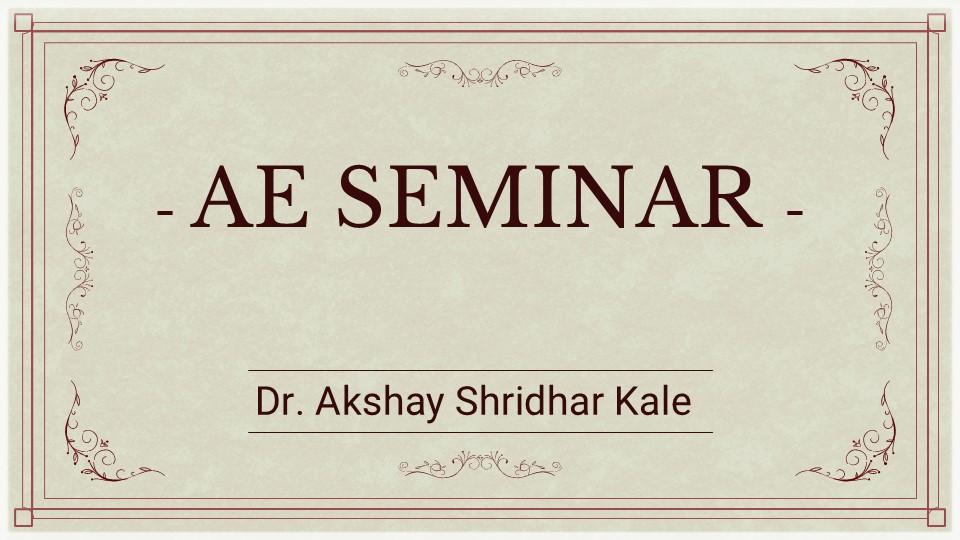
- This event has passed.
Miniaturised technologies for potential applications in space research
April 16, 2025 @ 3:30 PM - 5:00 PM

Miniaturised technologies, due to their portability, rapid responses, low powers and ability of multi-component integration, have received an ever-growing interest in areas like healthcare, air quality, and space research. This talk will provide an overview of my research in 3 domains of miniaturised technologies: a) microfluidics, b) MEMS sensors and c) nanoaerosol instruments. I will also highlight areas of space research where this work is potentially relevant.
I will begin my talk with my work in microfluidic particle enrichment and gene therapy devices. Enrichment devices, when integrated with a downstream sensor for target particle detection, can significantly improve the sensor sensitivity. I will cover my work in developing enrichment devices and mitigation of some undesirable effects that can limit their reliability. I will also introduce my work in commercial-scale microfluidic mixers for gene therapy. The work in this theme is highly relevant to healthcare in manned space missions and CubeSats to understand in-space behaviour of bio-species.
I will next cover my work in thin film MEMS mass sensors, which offer several advantages over conventional sensors like QCMs thanks to their portability, high sensitivities and excellent compatibility with semiconductor technology. This talk will cover my work towards enhancing their capabilities in areas of biosensing and simultaneous detection of multiple parameters. This work has a promising applicability in controlling ambient conditions inside spacecrafts, and healthcare in manned space missions.
I will conclude with my work in 2 miniaturised nano-aerosol technologies, namely a) an instrument that can produce a constant number concentration of charged nanoaerosols, a need unmet in aerosol instrumentation until now, and b) a sensor that can both count and map the global distribution of airborne ultrafine particles, a requirement crucial for the upcoming WHO air quality guidelines. The work in this theme has enormous significance in simulating cosmic dust conditions and satellite-based remote sensing of particulate matter distribution near the earth’s surface.
Speaker: Dr. Akshay Shridhar Kale
Biography:
Dr. Akshay Shridhar Kale is a senior postdoctoral affiliate at Trinity College and a teaching assistant at the Department of Engineering at the University of Cambridge, UK. He is also an Honorary Adjunct Professor at the Department of Mechanical Engineering at COEP Technological University in Pune. His research interests lie in the development of miniaturised technologies and possesses a track record in the areas of microfluidic devices, MEMS / acoustic devices and nanoaerosol instrumentation. He is also highly active in industry-oriented research and has completed several industrial consultancy projects in his areas of interest. His recent work on integration of miniaturisation principles with nanoaerosol instruments has won him grant funding awards that have partially supported the early stages of commercialisation of a portable nanoaerosol counter in collaboration with a spin-out company from his research group. At COEP, he is actively involved in developing microfluidics research programs and a proposed centre of excellence in micro- and nano- manufacturing. Along with research and development, he regularly teaches thermal and fluid science courses at Trinity College, and has co-guided several undergraduate and Masters students through his research projects across Cambridge and COEP. Dr. Kale earned his B.Tech. in Mechanical Engineering at COEP, followed by an MS and a PhD in thermal and fluid systems from Clemson University, USA